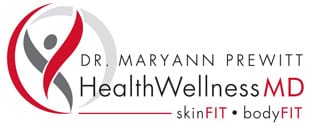7 Supplements to Keep Your Hormones Happy
Not a day goes by that I don’t hear some form of this question from patients: “Which supplements should I really be taking?” With so much conflicting information about supplements out there, it’s no wonder people are confused. At the risk of confusing you even further, know that I never recommend “supplements.” However, I do recommend supplementing with medical-grade nutraceuticals – especially for happy hormones. What are nutraceuticals? Nutraceuticals add extra health benefits to the nutritional foods you’re already eating. Because the American food supply is nutrient poor, we must supplement our diet. So adding essential nutrients is especially significant for keeping your hormones balanced.
Isn’t eating right always the answer?
As an expert in functional nutrition, I know that a nutrient-rich diet forms the foundation of overall wellness. Further, when your hormones are properly balanced, your body runs smoothly. So, how can you optimize your nutrition and your hormonal health at the same time? You must first and foremost eat a nourishing diet. But, it’s not that simple. I wish it were. Eating right is the ideal. However, supplementing with medical-grade nutraceuticals is the reality for longterm health. Keeping your hormones happy enhances your quality of life and extends longevity.
How do you get started on the path to hormonal happiness?
Before you begin any new regimen, you’ll need some blood work to see where you stand. Your doctor should run a full metabolic panel. But, also, an assessment of micronutrients to determine if you have any deficiencies. Almost all Americans lack fundamental nutrients necessary for optimal hormone function. Honestly, I’d be surprised if you didn’t. I have never seen a patient with pristine labs.
Complicating things more, recent research has established new optimal levels of all sorts of nutrients. These new ranges conflict with the ranges most labs use. Furthermore, many conventional physicians are not up to speed on current clinical studies. So, when they look at your results, they are not equipped to make proper recommendations.
Why should you care? You can’t treat what you don’t know.
Why should you care about hormone balance?
Hormonal imbalances cause physical and psychological symptoms. Many times, these symptoms remain misdiagnosed or simply ignored. About 80% of women suffer from some kind of hormonal imbalance during their lifetime. Imbalances leading to physical and mental health challenges. Many women produce inadequate amounts of estrogen and progesterone levels – the two most significant female sex hormones.
And most of us believe that testosterone is exclusively a male hormone. They are dead wrong. Testosterone in women performs many vital functions, including:
- maintains lean muscle mass
- protects the brain from dementia
- lowers risk of heart disease
- builds far better bones than estrogen.
Should men worry about hormone balance?
Hormonal imbalance is hardly a woman’s issue. Men are equally susceptible to a range of hormonal imbalances. In their case, their testosterone is too low or they produce inadequate estrogen. In men, estrogen performs important functions, including:
- protects against heart disease
- helps prevent stroke
- protects the brain against Alzheimer’s
However, sex hormones are not the only chemical culprits in this story
Hormones are not simply about sex. Far from it.
Most of us associate hormones primarily with sex. But, we’re really not giving these chemical messengers enough credit. Hormones are more complex than that. Your hormones control how well you respond to stress and how well you sleep. They also determine what kind of mood you’re in and how your thyroid functions. If one or more is even slightly imbalanced, it starts a domino effect on your health.

When your hormones are happy, you’ll be amazed how your world is transformed.
When do hormonal imbalances occur?
Hormonal issues typically occur when you produce too much or too little of certain hormones. As a result, the body becomes less efficient at processing nutrients – things like proteins and vitamins in the food you eat. This malfunction triggers a chain reaction. The result? Serious issue like diabetes, ovarian dysfunction, hypothyroidism, cardiovascular disease, and loss of libido. These conditions occur in men and in women and at any life stage. As far I’m concerned, the decline or loss of sexual desire is as significant as major disease.
What causes them?
Each of these health problems stems from a variety of causes: genetics, poor diet, and stress. Sleep deprivation, for example, lowers testosterone. At the same time, it raises cortisol – the “stress hormones.” Chemicals in foods and toxins in the environment can also disrupt your hormones. Other possible causes of hormonal disorders include obesity, menopause, and pregnancy. In men, if you suffer from low testosterone, that means you’re also hypothyroid. Many men can even reverse low-T by taking thyroid hormone.
You may not have full control over all of these factors. But you can prevent and manage hormonal imbalances. Simple lifestyle changes, such as eating whole foods, getting better quality sleep, and adding more movement can contribute to hormonal balance. However, for many, such modifications are not enough.
Nutritional support for optimal hormonal health
In my practice, I encourage all my patients to optimize their hormones to improve quality of life. First, I evaluate and treat any thyroid dysfunction and hormonal imbalances. For inadequate testosterone and estrogen levels, I treat with bioidentical hormone replacement with pellet therapy. And, for thyroid problems, I prescribe thyroid hormone. However, for these measures to succeed, patients must supplement with medical-grade nutraceuticals. Hormones always need a little help from their friends to get their job done right. Think of these vitamins and minerals as your hormones’ friends.
7 supplements your hormones can’t live without:
I’m going to assume most of you take a medical-grade multivitamin with breakfast or dinner. If you don’t, you should. But, you’re going to need more than a multi to keep your hormones firing on all cylinders. Here are 7 supplements to help your hormones function optimally:
- Vitamin D: In many ways, D behaves more like a hormone than a vitamin. Your D-level is the number one indicator of both disease and mortality death. D supports thyroid function and weight-control. The nutrient is critical for the prevention of clinical depression and Seasonal Affective Disorder (SAD).
- Iodine: For thyroid support, take Iodine. You can’t produce your thyroid hormone without it. Furthermore, it decreases disease in all reproductive tissue – for men and women. Plus, Iodine detoxes you at the cellular level.
- Probiotics: You probably know that probiotics are great for your gut health. A healthy microbiome easily absorbs nutrients in your food as well as your nutraceuticals. Beyond that, your gut produces more than 90% of your body’s serotonin, your “feel-good hormone.” So, you want a healthy gut for your mental health. A healthy gut means a healthy brain.
- DIM: Diindolylmethane restores hormone levels in several ways. It helps rid your body of harmful estrogen byproducts. And DIM is the most potent anti-inflammatory supplement available. This compound also helps with heart health by reducing plaque formation in arteries. Ready for more? DIM aids in both muscle-building and fat loss. Moreover, it boosts energy and stamina, increases libido, and lifts your mood. What can’t DIM do?
- B-Complex: People with B vitamin deficiencies frequently experience depression, anxiety, and mood swings. We need B vitamins for the nervous system to work properly. During pregnancy, they prevent brain and spine defects in the fetus. Further, B vitamins promote healthy metabolism and reduce the risk of stroke.
- Ashwagandha: This herbal supplement benefits your thyroid function by it promoting the elimination of free radicals. Ashwagandha can be used to support a sluggish or overactive thyroid and help overcome fatigue. When you experience too much emotional, physical, or mental stress, your body can become overtaxed. Such stressors lead to the disruption of hormones like adrenaline, cortisol, and progesterone. If you’re feeling stressed, Ashwagandha helps you respond to it better.
- Omegas: Omegas make it easier for hormones to reach their destination on the cell. For your heart and brain to function at their best, Omegas are essential.
Once your hormones are in balance, you’ll see positive benefits across the board. Your weight will be easier to manage and your skin will look younger. You’ll have more energy and enjoy a more restful sleep. The icing on the cake? Your sex drive and satisfaction will soar. Once you get your hormones working for you rather than against you, the sky is the limit.


